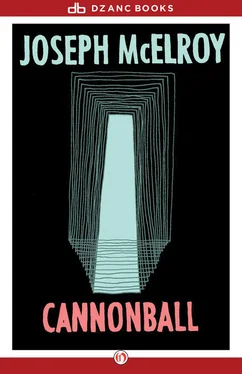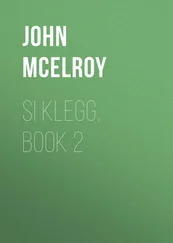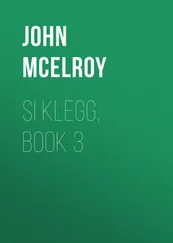Joseph McElroy - Cannonball
Здесь есть возможность читать онлайн «Joseph McElroy - Cannonball» весь текст электронной книги совершенно бесплатно (целиком полную версию без сокращений). В некоторых случаях можно слушать аудио, скачать через торрент в формате fb2 и присутствует краткое содержание. Год выпуска: 2013, Издательство: Dzanc Books, Жанр: Современная проза, на английском языке. Описание произведения, (предисловие) а так же отзывы посетителей доступны на портале библиотеки ЛибКат.
- Название:Cannonball
- Автор:
- Издательство:Dzanc Books
- Жанр:
- Год:2013
- ISBN:нет данных
- Рейтинг книги:5 / 5. Голосов: 1
-
Избранное:Добавить в избранное
- Отзывы:
-
Ваша оценка:
- 100
- 1
- 2
- 3
- 4
- 5
Cannonball: краткое содержание, описание и аннотация
Предлагаем к чтению аннотацию, описание, краткое содержание или предисловие (зависит от того, что написал сам автор книги «Cannonball»). Если вы не нашли необходимую информацию о книге — напишите в комментариях, мы постараемся отыскать её.
continues in McElroy's tradition of intricately woven story lines and extreme care regarding the placement of each and every word. A novel where the sentences matter as much as the overall story.
Cannonball — читать онлайн бесплатно полную книгу (весь текст) целиком
Ниже представлен текст книги, разбитый по страницам. Система сохранения места последней прочитанной страницы, позволяет с удобством читать онлайн бесплатно книгу «Cannonball», без необходимости каждый раз заново искать на чём Вы остановились. Поставьте закладку, и сможете в любой момент перейти на страницу, на которой закончили чтение.
Интервал:
Закладка:
We were thinking of another time we’d been talking in bed and God that time when I came out into the hall in my underwear to go to my room, he was standing in the bathroom doorway the light off behind him, and you just knew he was angry as hell. Did she remember? What in particular? she retorts, her tongue softly clicking the syllables. “It was the night before the accident.”
“I remember the night of ,” she said, to be a little difficult.
Was he outside her door now this night of the enlistment party — and, now, a second, secret one? She was mine. The mystery of a son’s enlistment uncanny on his night when he might just have had a hand in it, the Specialist package, the Army phoning. (An agreement, yes between me and my friend Umo. That I’d enlist. But the agreement went beyond it.) While here, on my sister’s dresser, remotely aglint with amber promise, a subterranean mine pocket was what the geode looked like, its own light focused from the threshold’s edge.
…till he told us to shut up and go to sleep — and we touched across his sleeping-bag feet, and my little sister whispered, Poor man, and we snickered like paper tearing in the stillness between the beginning breakers of his breathing and held hands more or less all night — and we planted the other half of the “orange” when we moved out in the morning and he said, What’re you two—…? “That’s right, I remember, he didn’t finish. Oh did he open the—” “One step forward, I bought my first incense sticks at the trading post,” the dark intelligent curls falling forward, the face above me, hips, knees, “how couldn’t you go way beyond diving?” was what this poetic person, imagining a drive far greater than competitive, her elbows either side of my neck, had said to me the night of my enlistment party, which was continuing into the depths of all I could fathom—“my unpretentious carpenter,” was what she said, and whether Dad had opened The Inventor’s envelope I’d given him for his birthday remained unknown I thought, where it belonged for a while, though again she said when I left that I had been to the better party until I had come home and this became the best party of all.
Events some of them public only at the Competition Hearings months later: the mere trip from billet to palace e-mailed after I got home to my sister ending with the little Specialist from Wisconsin, my chauffeur, “Out you go,” and then something through the closed glass of the passenger-side window her lips like a smooch brought together in a word, “chose,” I felt sure. Yet my sister had to know what came before that, and so on, message “after” message, clear back to my driver picking me up while once for two weeks I got my sister’s mail in reverse order through the Army systems. But I was to learn what I knew already, that they would wish to silence truth by exposing privacy, whoever, one night after I had sent all the stages of the brief trip billet to palace reported like effect followed by cause to my impatient sister (impatient for what? what happened just before and before that), e-mailed me the lot from a merely numbered e-address as if I would want to have it for the record when it was from my beloved wit: though like prophecy shared in a book I carried with me as with its donor my sister then going by the name of “Em” I enlarge upon my memory of the disastrous day, its degree of difficulty, second-guessing my understanding of my father, but no. Run it backwards, I’m here.
My escort coming at 0800. Would I hear my watch alarm? Did I get the function right, the numbers? — one two three four five six seven, if the alarm Set didn’t get away into Time itself. I tumbled back into my narrow bed, leaving my little book on the floor and taking my sister’s words with me, the geode in my hand, crystals projecting out of time — in love — reversing a dive I once took in one piece — the issue wide open of who would want that War Child soldier I’d just talked to dead in the street. Not that he’d spilled anything of importance to me, not certainly identified the video crew-member whom ( Affirmative ) he did know — the soldier who was and wasn’t a soldier, and is anyone blameless (as the book and the actor too says)? Nor had Umo been identified, but.
Taxiing east across the desert hundreds of miles, three of them, four with driver, if they made it past Euphrates River corridor sweeps and past roadblocks on almost half the major roads. Entering perhaps this very city of riddled bridges (three closed of eight), expressway past the park, great mosque dome blue as a Virgin’s cloak, blue as a bird, a drained pool right here outside the stock exchange — all to tape GIs glued to their music tapes on the threshold of assaults that classic Rock for all its sound said No to, where Now’s neighborhood blasts us off into funkadelic ready-for-anything or un ready commitment-is-the-name-of-it action plus just talking for the film crew, making do with the Occupation, living with whatever, with war, what we have to do, our way against theirs, two steps forward, fifty years back in, yo, whatever order, like why’d you enlist, Zach? — hey wait a sec, listen to this, an earphone offered.
13 might as well want a dive back
Patient, I had photographed the black soldier, clicked him into some lasting increment, my moment of hidden equilibrium it came to me, a photo in between. I begin then — tell you what happened just before and so on.
7. “This is as far as I go,” she said, braking and shifting, and almost laying her hand on my leg, sunlight splitting the dried mud across the windshield from a roadside mortar early this morning, when somebody else had been driving this civilian wreck not a true substitute for a Humvee. What’re ya doin? she murmured, feeling me lean and then not. That guy in there by the fountain, I said. She wouldn’t know. I knew she wasn’t driving me through the great arched gateway. “Wait a minute,” I said. “Out you go,” she said. “I know that guy from somewhere.” She put the car in gear and touched me, put her finger on the back of my hand, Specialist from Wisconsin. “You know more than me. Don’t get shot, now, like that Bedouin who was born without eyes just standing by when they shot his cousin who went fishing for the Scrolls.” “But, a deserter were you saying, the film crew, a deserter—?” I said, stunned to hear “Scrolls.” “Yeah. Out you go.” “This is the palace,” I said, the stone, the fractured minaret, chipped pillars, like my status suddenly in question. “One of them,” she said, her braid below the camouflage cap blond and dark-streaked, my driver and fan, my one-way ride: “This is what you’re here for.” “This is what we’re all here for.” “That’s all I know,” she said. “But you remembered…” (I was pushing.) “Ask the captain,” I said. “The captain,” she said (who liked her, protected her from E-5 “rapists,” but from himself too?). “I wish I knew what we were all here for,” she said for some reason. “I hear you,” I said, getting myself out, older I felt. “Spread the word.” She said something through the glass of the window that brought her lips together, the word “chose” I feel sure, beyond irony. I fingered the micro out the size of a quarter and got, I hoped, a shot of her in profile if I didn’t see her again, this fan of my crappy photographs with amazing info, who might have seen what had been cropped not by me from my shot of the arm-wrestlers in Kut, but I didn’t think so, she just knew, she had some kind of understanding; but I had to wonder what had become of Umo.
6. Some documents had nearly surfaced at one of the wells networking a region to the west. A desert thief, or enemy, had fished out an eighteen-inch capsule (that was what my driver knew), had opened and tried to read the contents (ancient, what she’d heard — something about scribes and family think you’re crazy , and get you off the street , and Be a passerby ), and this desert interloper been shot to death, and the documents had been rolled up, slid back in (that was all she knew), and sent on their way at this point of water acceleration identified by an Army engineer as a current, on the basis of what he had heard. That was what my driver knew. It was like fucking to hear this. She had nothing to do with Operation Scroll Down, she said; she kept it separate, just seeing that I got there. She was taking me a back way, no traffic lights, no stop signs, half the traffic lights were busted, you didn’t want to be at those intersections. That shot of the arm-wrestlers at Kut, well it, she said, moved me no end — what had you said to them? (Uncanny of her, her mouth, like she knew something of my connection to the weightlifter though he hadn’t recognized me from home.) We passed a power plant near a bridge that was open. Didn’t we pass a Nineveh Street? “You said something…” “Just as I snapped them. I have to meet someone there I think.” “You don’t know?” “Get there somewhere.” “Kut.”
Читать дальшеИнтервал:
Закладка:
Похожие книги на «Cannonball»
Представляем Вашему вниманию похожие книги на «Cannonball» списком для выбора. Мы отобрали схожую по названию и смыслу литературу в надежде предоставить читателям больше вариантов отыскать новые, интересные, ещё непрочитанные произведения.
Обсуждение, отзывы о книге «Cannonball» и просто собственные мнения читателей. Оставьте ваши комментарии, напишите, что Вы думаете о произведении, его смысле или главных героях. Укажите что конкретно понравилось, а что нет, и почему Вы так считаете.












